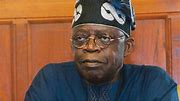Two years into President Bola Tinubu’s term, Nigeria is witnessing a significant economic transformation. While many sectors are grappling with challenges like inflation and high living costs, the country’s banking industry has emerged as a standout success story of the administration’s reform agenda.
President Tinubu highlighted the necessity of these reforms in his second-anniversary speech, stating,
“The only alternative to the reforms our administration initiated was a fiscal crisis that would have bred runaway inflation, external debt default, crippling fuel shortages, a plunging naira, and an economy in free-fall.”
As the nation strives to achieve a $1 trillion GDP target by 2030, Nigerian banks have experienced a resurgence in profitability and foreign investment inflows. Nabila Mohammed from Chapel Hill Denham noted that banks have benefited significantly from macroeconomic tailwinds created by high interest rates and currency devaluation.
“The banks’ recapitalisation efforts and favorable economic conditions have revived foreign investor interest in Nigeria’s equity market,”
said Mohammed. This renewed confidence is evident in the substantial increase in foreign capital inflows into the banking sector.
In addition to attracting foreign investments, Nigerian banks have reported record profits and significant gains from foreign exchange transactions. The combined after-tax profits of top banks soared to ₦4.79 trillion ($3 billion) in 2024 from ₦1.19 trillion ($749.9 million) in 2022.
GTCO and Zenith Bank notably crossed the ₦1 trillion profit mark for the first time last year. Adaora Umeoji of Zenith Bank attributed this success to effective risk management strategies and optimized treasury portfolios that reinforce their industry leadership.
The surge in profitability prompted discussions around implementing a windfall tax on bank earnings to fund critical sectors like infrastructure and healthcare. However, concerns were raised about potential strains this tax could impose on the banking sector by Muda Yusuf of CPPE.
Despite their impressive financial performance, banks are facing rising operational costs driven by inflationary pressures and increased energy expenses. The depreciation of the naira has also impacted capital buffers while high lending rates are hindering borrowing activities among businesses.
Looking ahead, as inflation moderates and no major devaluation or rate hikes loom on the horizon, Nigerian banks may need to navigate towards sustainable returns amid tighter margins and heightened competition within the sector.









Leave feedback about this